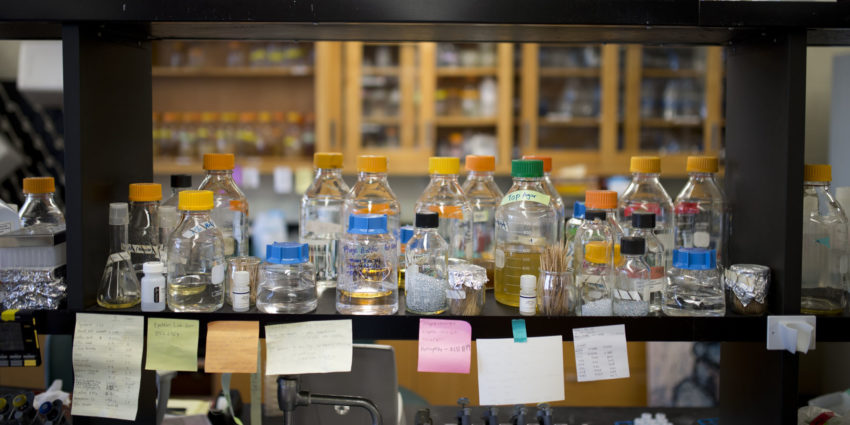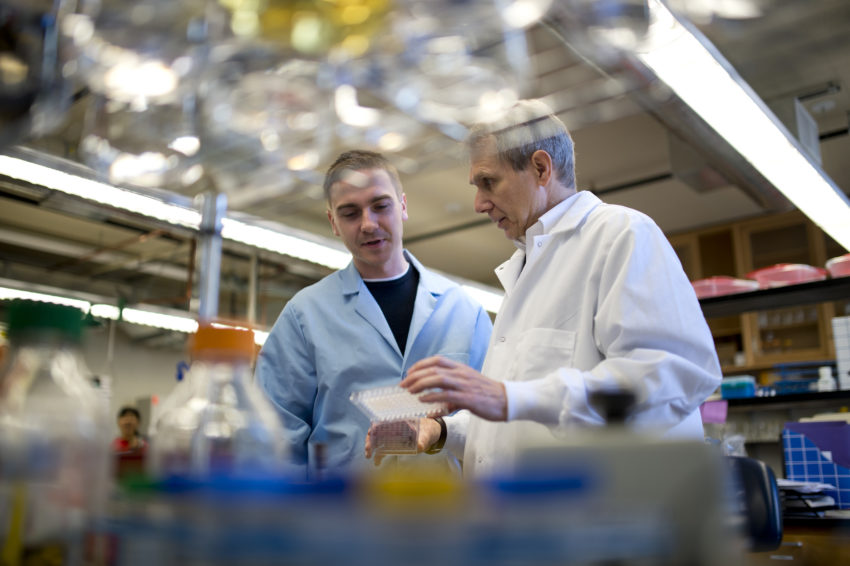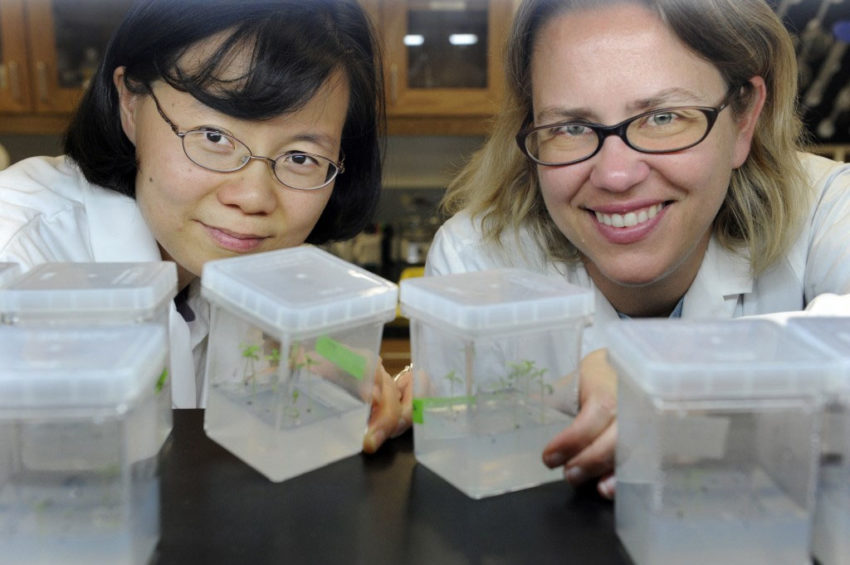News
Prof. Javier Apfeld studies worms to reveal the fountain of youth
" 'What controls how long an organism lives?' he asks. 'I study that question in worms, which are a great model because they live only about two weeks, so I can do experiments quickly and relatively inexpensively . . . many of the genes that affect lifespan in worms affect lifespan in other organisms.' " – News@Northeastern article by Thea Singer
March 22, 2016
Prof. Kim Lewis gains grant to find new Lyme Disease Treatments
"Northeastern University Distinguished Professor Kim Lewis has received a $1.5 million grant from the Steven & Alexandra Cohen Foundation to develop better treatments for Lyme disease." –COS News Article
March 21, 2016
Assistant Teaching Professor awarded Excellence in Teaching Award
Congratulations to Prof. Missy McElligott for winning the 2015-2016 College of Science Excellence in Teaching Award!
February 11, 2016
NU Talk 2016 – Community of Scientists at Northeastern
"Scientists and researchers. Educators and future doctors. These were the people behind NU Talk 2016, from the organizers to the presenters themselves. But the impacts and implementations that were presented do not just affect the scientific community. They are global, and they concern the future of society as a whole. The main idea of NU Talk 2016, which was January 28, 2016, was to voice student passions to a general…
February 05, 2016
Graduate Student Steve Moore’s Recent Publication
"Transcriptional regulation is a tightly regulated, vital process. The transcription factor (TF) CREB1 controls ~25% of the mammalian transcriptome by binding the CRE sequence (TGACGTCA). DNA lesions within CRE modulate CREB1 binding negatively and positively."
January 28, 2016
Graduate Student Steve Moore’s Recent Publication
"Transcriptional regulation is a tightly regulated, vital process. The transcription factor (TF) CREB1 controls ~25% of the mammalian transcriptome by binding the CRE sequence (TGACGTCA). DNA lesions within CRE modulate CREB1 binding negatively and positively."
January 28, 2016
Prof. Apfeld’s Recent Paper on Caenorhabditis elegans Ageing
"Temporal scaling would arise if all physiological determinants of the risk of death in C. elegans acted as if they were jointly governed by a single stochastic process whose rate constant alone was altered by interventions."
January 28, 2016
Prof. Apfeld's Recent Paper on Caenorhabditis elegans Ageing
"Temporal scaling would arise if all physiological determinants of the risk of death in C. elegans acted as if they were jointly governed by a single stochastic process whose rate constant alone was altered by interventions."
January 28, 2016
Slava Epstein: From immigrant painter to world-renowned biologist
"Dr. Epstein’s research focused on what he believes to be the single greatest barrier in the way of understanding microbial life. It is known as the great plate count anomaly." –Joshua Timmons, Biology Class of 2017 for COS News
January 21, 2016
Which studies got the most media buzz in 2015?
"The number one story [that generated media buzz in 2015] according to Altmetric: "A new antibiotic kills pathogens without detectable resistance," [was] published in January [2015] in Nature."–ScienceInsider News Article by John Bohannon
December 14, 2015
A radically simple idea may open the door to a new world of Antibiotics
"Epstein is using ichips to understand the ecology of bacteria in the natural world. Most recently, some of his colleagues have buried ichips in Greenland tundra to study Arctic microbes." –Stat news article by Carl Zimmer
December 03, 2015
The Year of Changing Our Minds: The Leading Global Thinkers of 2015 | Kim Lewis and Slava Epstein
Biology professors Slava Epstein and Kim Lewis have been recognized by Foreign Policy for their innovative approach to bacteria cultivation.
December 02, 2015
The Year of Changing Our Minds: The Leading Global Thinkers of 2015 | Kim Lewis and Slava Epstein
Biology professors Slava Epstein and Kim Lewis have been recognized by Foreign Policy for their innovative approach to bacteria cultivation.
December 02, 2015
COS professors get NSF grant to study production of cancer drugs
"Dr. Carolyn Lee-Parsons, Associate Professor of Chemical Engineering and Chemical Biology, and Dr. Erin Cram, Associate Professor of Biology, have received a $650,000 grant from the NSF to investigate the production of cancer drugs in Catharanthus roseus, also known as the Madagascar periwinkle." –COS News Article
November 30, 2015





